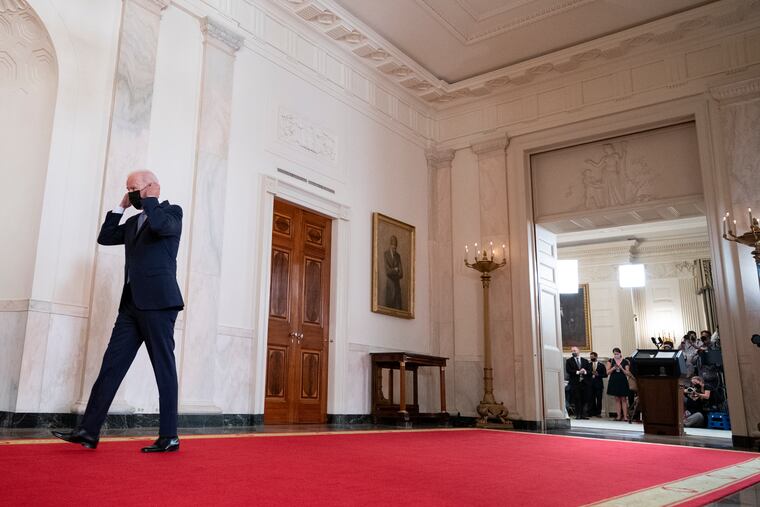Measuring the cost of the Afghanistan war in dollars — and missed opportunities at home | Solomon Jones
America spent $2 trillion on a 20-year mistake that spanned four presidencies. But what if those resources had been used to fight poverty, inequality, or injustice?

I seldom get biblical in this space, but when I contemplate the historical record of the war in Afghanistan, one passage keeps bubbling to the surface: “For where your treasure is, there your heart will be also.”
For me, that simple verse from the Gospel of Matthew sums up the misadventure that was the war in Afghanistan. America spent $2 trillion on a 20-year mistake that spanned four presidencies. Through Republican and Democratic administrations, across liberal and conservative ideologies, America sent troops and contractors and spies to Afghanistan on credit, knowing that the final bill would be far higher than the initial estimates — $6.5 trillion according to Forbes.
To make matters worse, America did it all while our domestic infrastructure crumbled, while our economic inequity ballooned, and while our racial and ethnic strife swelled to a crescendo of chaos. Ultimately, the hearts of those who would keep us mired in this war are not with the people. Their hearts are with the politically connected corporate interests and weapons manufacturers who benefit from armed conflict. And alas, that is where they put their treasure — into the pockets of those who enriched themselves while more than 2,400 American soldiers died, for a war that gained us nothing.
As a Black man, I am especially outraged, because I know what a fraction of that money could have done in my community. In Philadelphia, where roughly a quarter of our citizens live in poverty, spending $300 million per day as we did in Afghanistan over the past 20 years would change the economic outlook in communities where poor education, lack of job opportunities, and racism have combined to create a hopelessness that breeds gun violence.
I am outraged because the American political leadership that once handed out no-bid military contracts to Halliburton — the company that was formerly helmed by former vice president Dick Cheney — will not seriously discuss the prospect of reparations for the descendants of enslaved Africans. And Blackwater, the company run by Erik Prince, brother of former Trump education secretary Betsy DeVos, enriched itself on the Afghan war to the bitter end, reportedly charging $6,500 to get people out of the country as the Taliban took over.
I am outraged because in America, where war is glorified in video games and movies, where brutality is the stuff of primetime television, where music is filled with the language of murder, our children are indoctrinated into a culture of violence from an early age.
The hearts of too many American leaders are bound by greed, by bloodlust, and by war, and that’s why we had no problem spending $2 trillion to kill people in Afghanistan and Iraq, but face a pitched political battle to spend $3.5 trillion to build the social safety net at home.
It’s ironic, really. Joe Biden, the president who rightly ended the charade by bringing this war to an end, will probably pay the biggest political price for doing so because many Americans believe it is more important to conquer nations than to conquer poverty, or inequality, or injustice, or racism.
That’s not how Biden explained it when he spoke to the American people last month, though. “Our mission in Afghanistan was never supposed to have been nation-building,” Biden said. “It was never supposed to be creating a unified, centralized democracy. Our only vital national interest in Afghanistan remains today what it has always been: preventing a terrorist attack on American homeland.”
Perhaps that’s true. But it’s also true that the biggest domestic terror threat we currently face is the danger posed by violent white nationalists who target Black and brown people right here on American soil.
I suspect we could eradicate that threat for a fraction of the cost of the Afghan war. However, putting American treasure behind the battle against racism would mean refocusing our hearts, taking a long look in the mirror, and mustering the courage to change our collective will — and I don’t know if we’re ready to make that change.